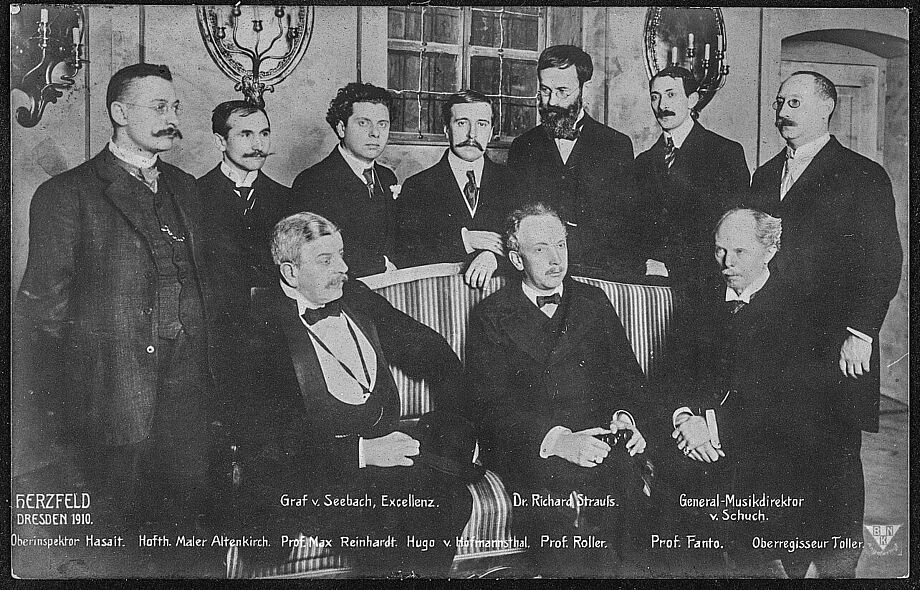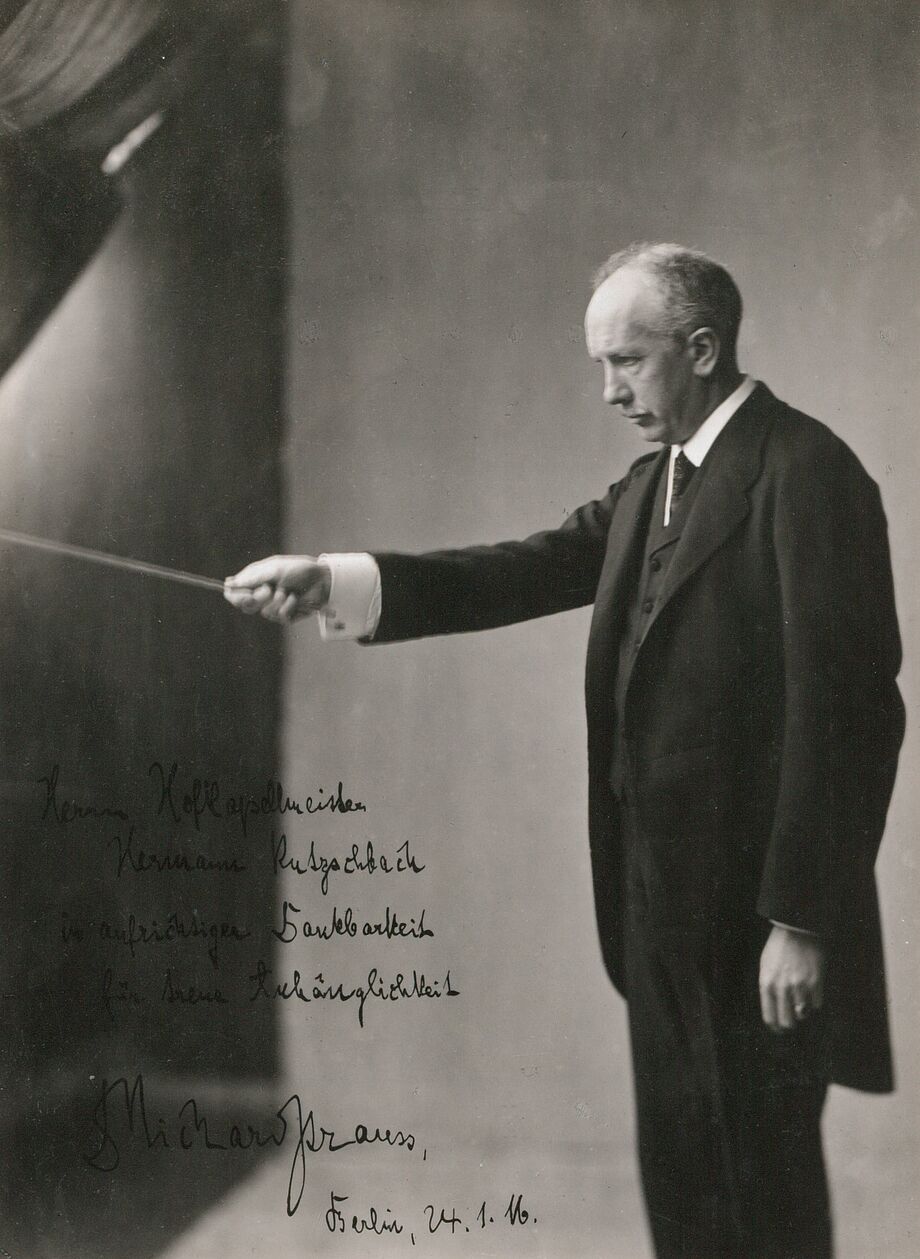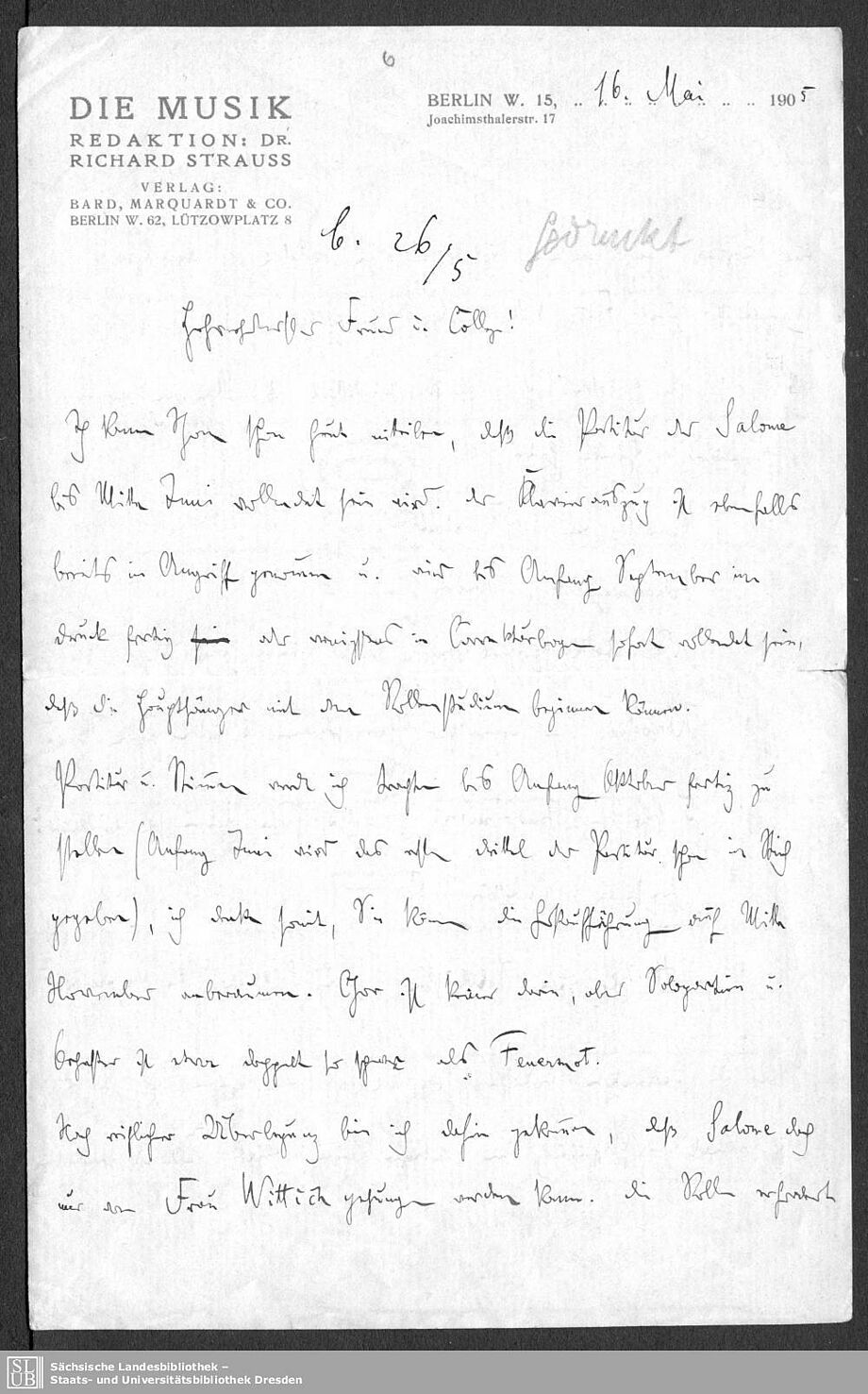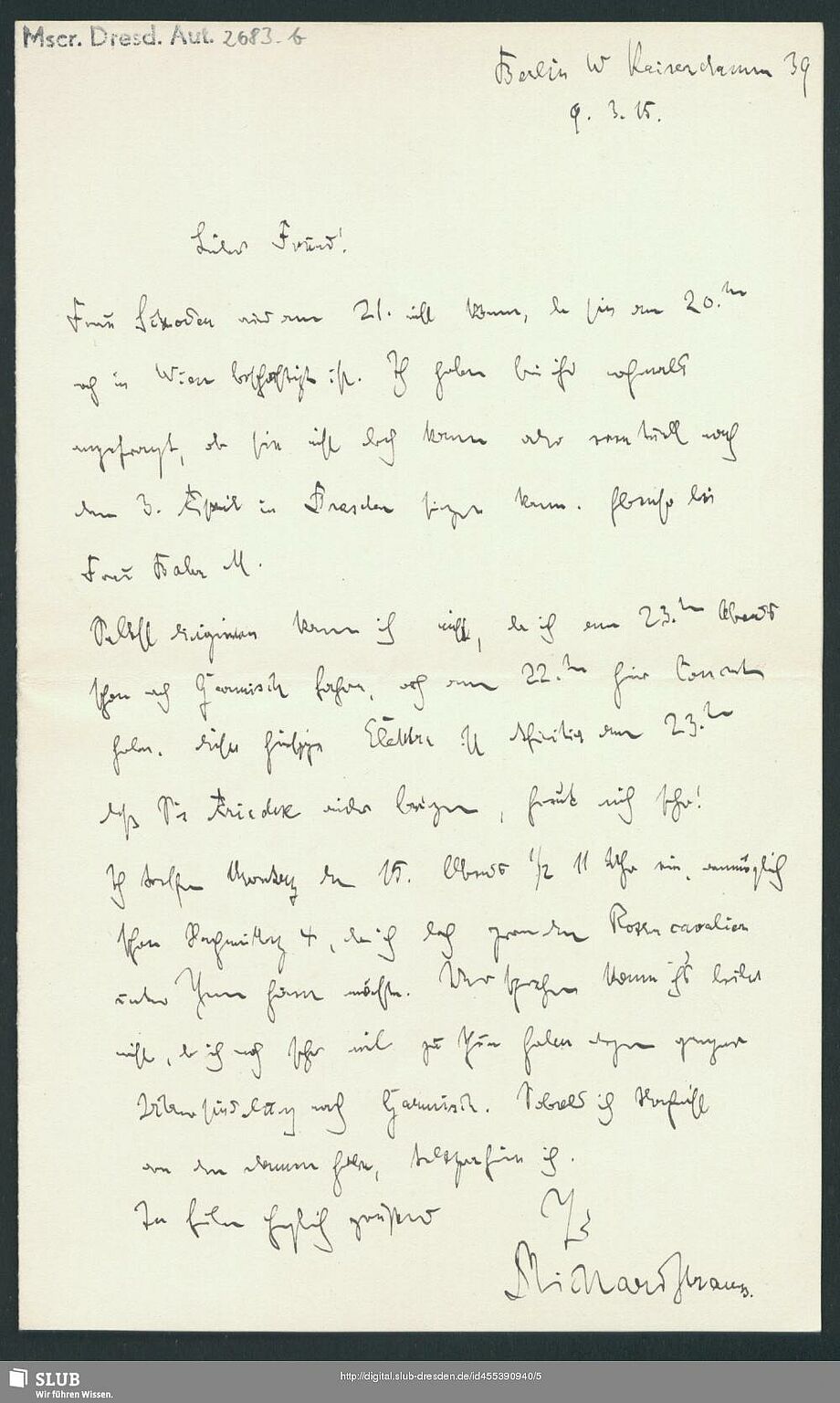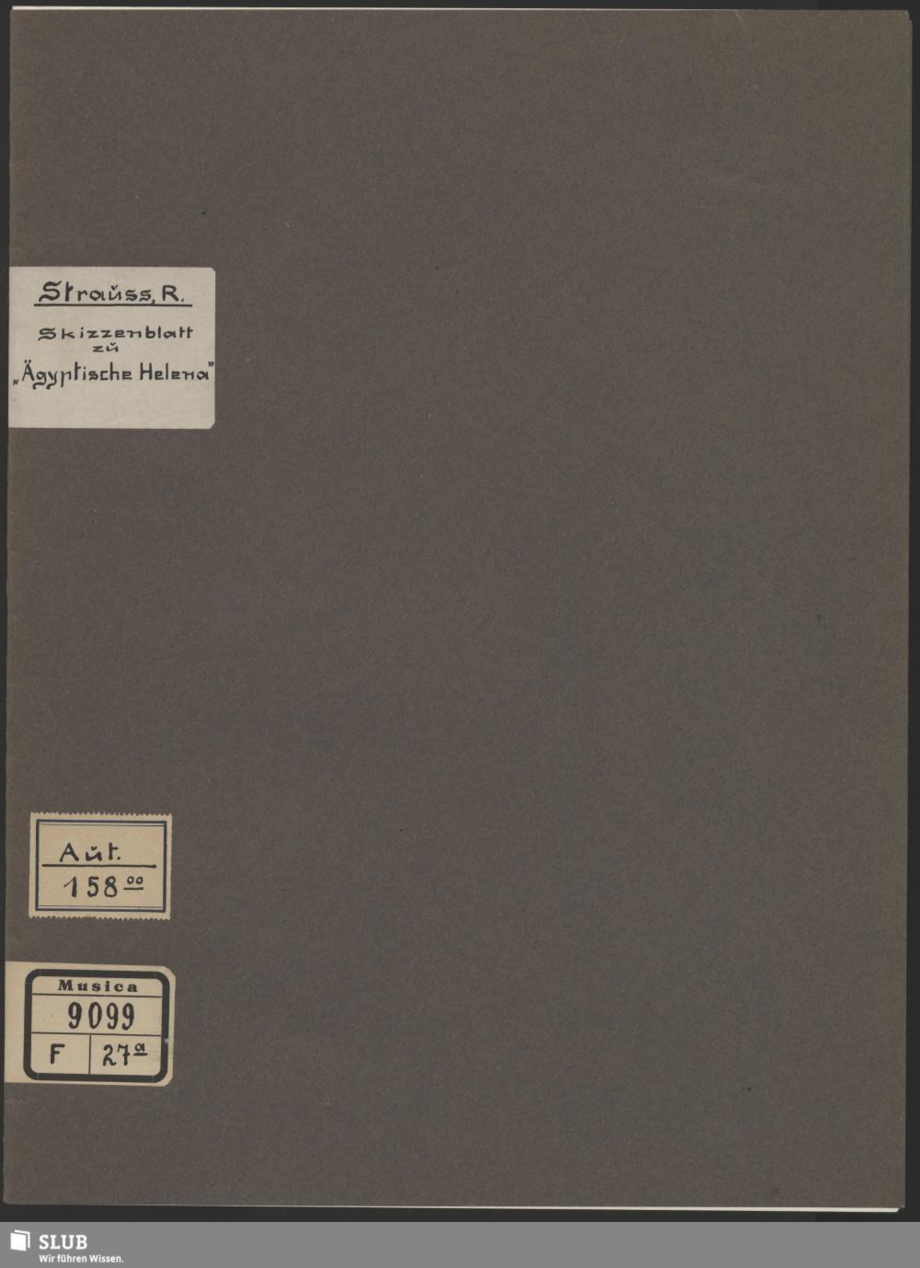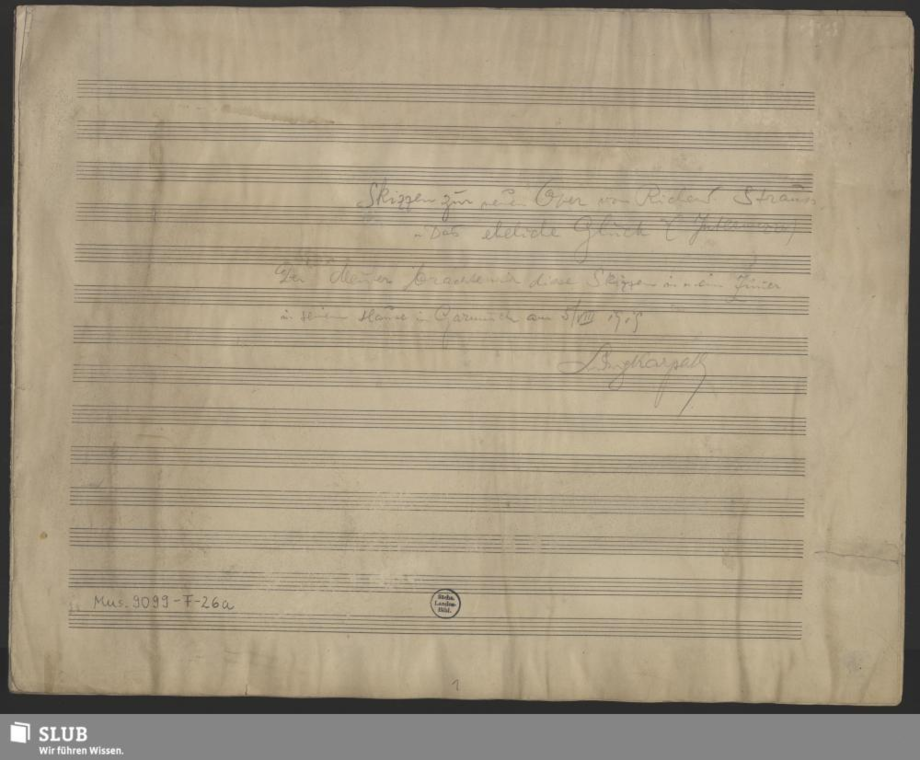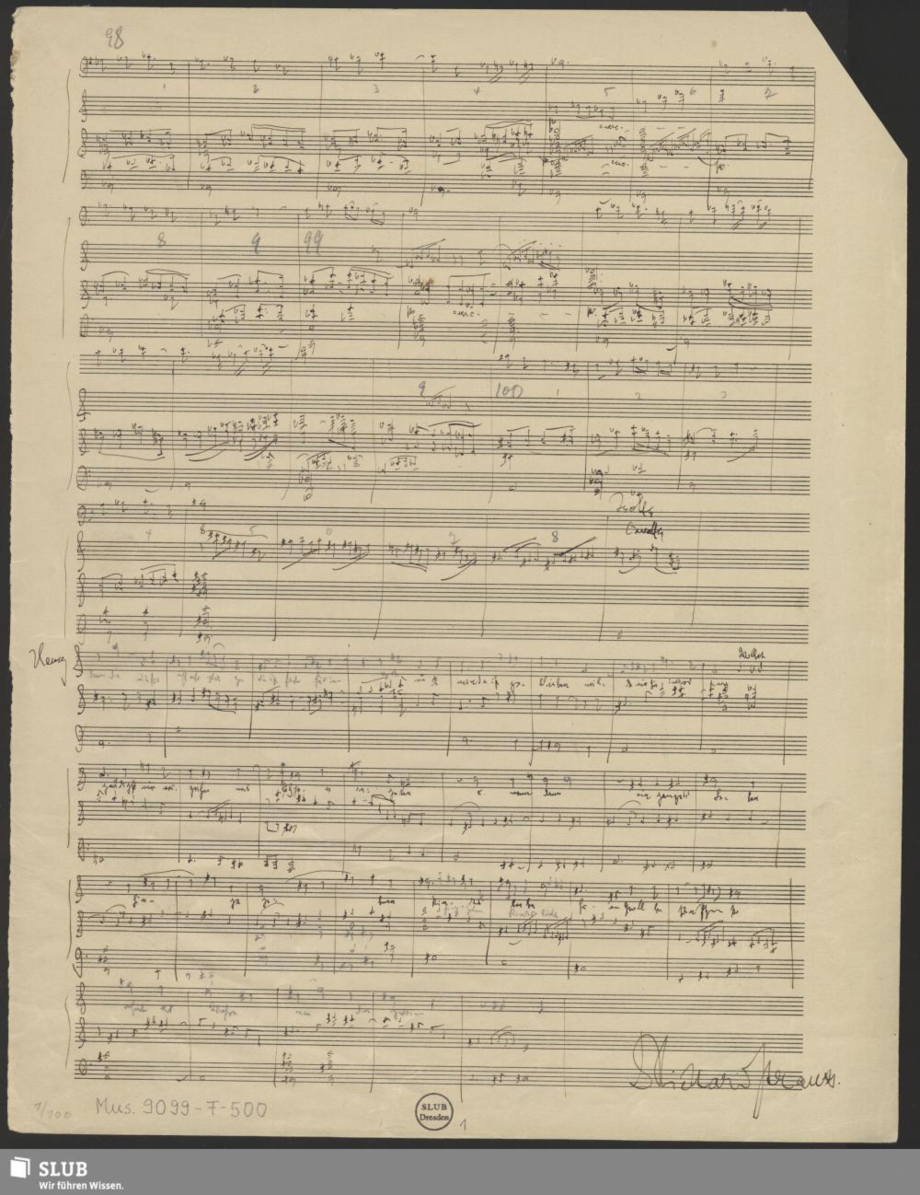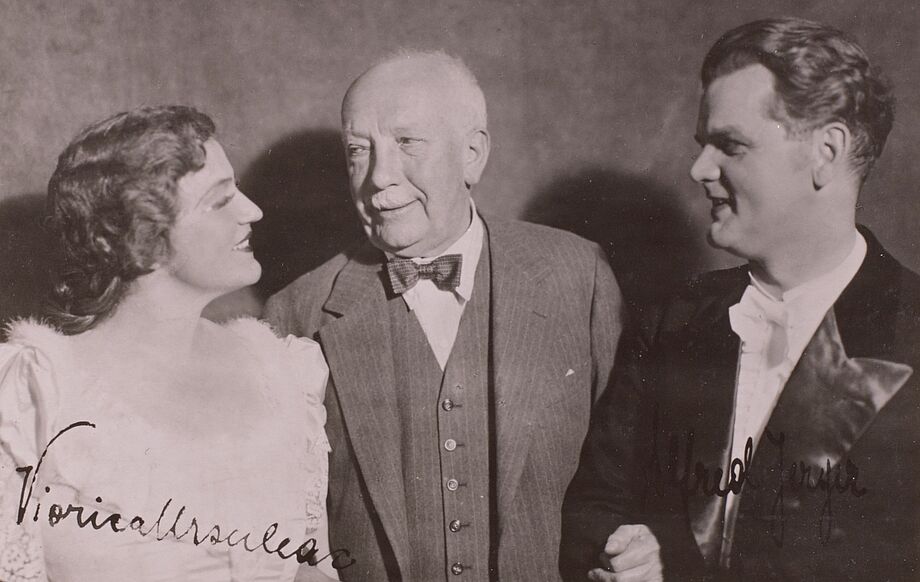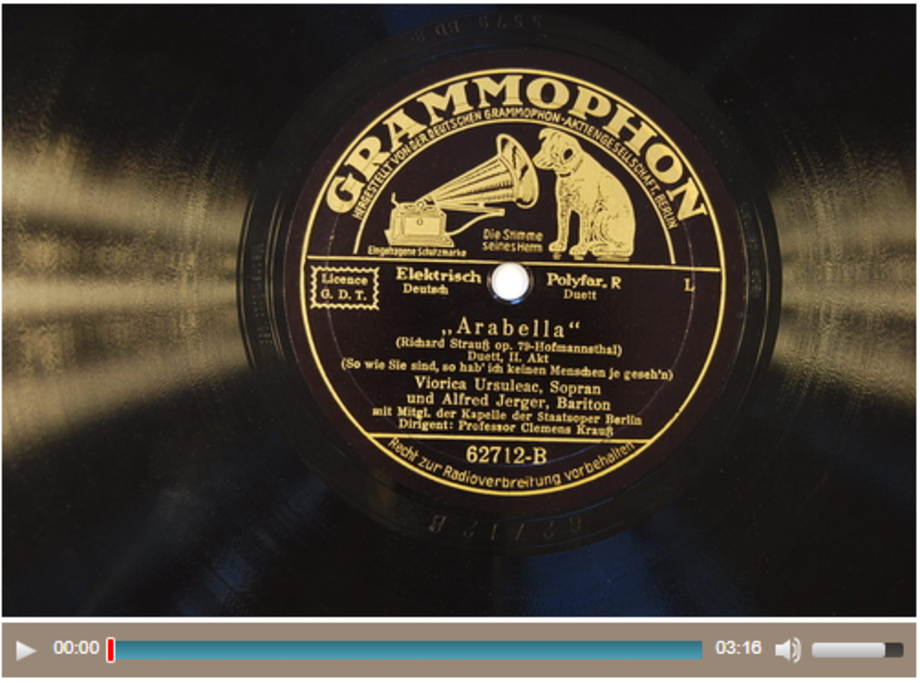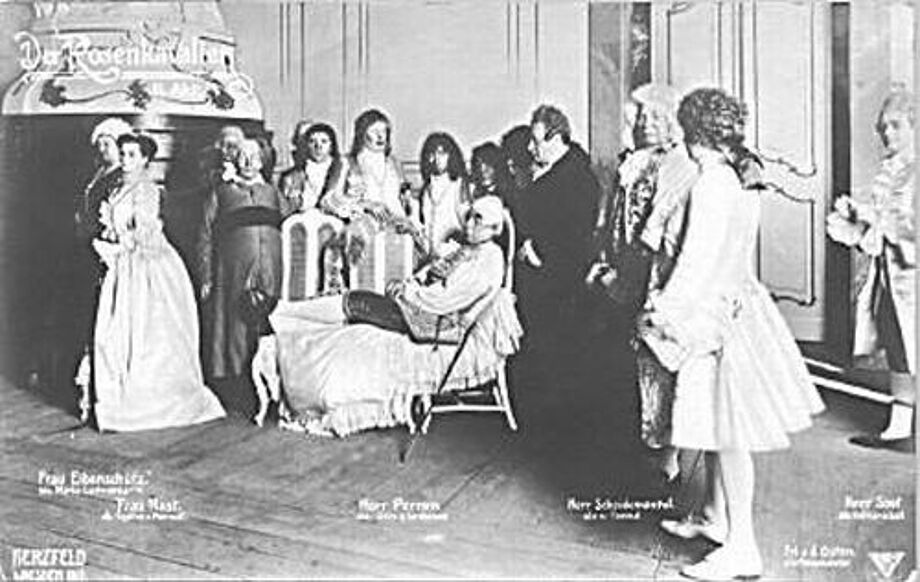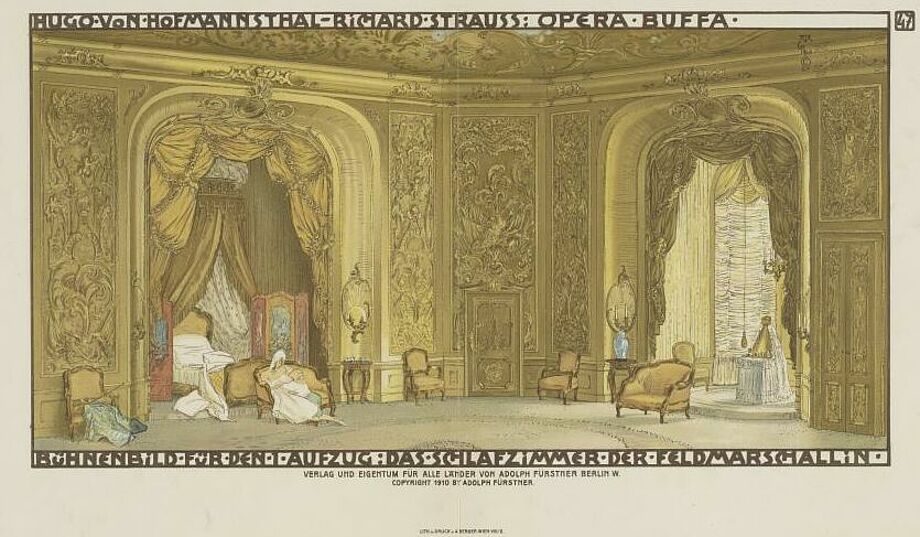Richard Strauss ...
... and Dresden
He never had a permanent home in Dresden, never held an official post - and yet the relationship between Richard Strauss and Dresden is a very special one: nine of his operas were premiered here, in what Strauss is said to have called the "Dorado for world premieres", and soon an intensive Richard Strauss cultivation ensured regular Richard Strauss Days. Strauss had a close relationship with the Dresden artists - conductors, singers and musicians. Although he was never a citizen of Dresden, Strauss spent a lot of time here: more than 60 visits are documented, during which he listened to rehearsals, attended performances - or simply played skat.
... at the SLUB
A wide variety of Straussiana has been preserved in the collection departments of the SLUB. The manuscript department houses letters and notes by Strauss, including several to the Dresden conductors Jean Louis Nicodé (Philharmonie), Ernst von Schuch and Hermann Kutzschbach (Royal Court Opera, later State Opera).
The music department has autograph sketches of various Strauss operas, such as Egyptian Helen, Intermezzo, The Love of Danae and The Silent Woman.
The fact that Richard Strauss's works became part of the repertoire for sound recordings at an early stage is demonstrated by the many examples in the media library.
Several photos provide an insight into the stage action, but also show portraits of Strauss and the Dresden orchestras.
Finally, these materials are supplemented not only by programme notes and reviews, but also by stage sets and costume designs, such as those left by Alfred Roller for Der Rosenkavalier .
... digital
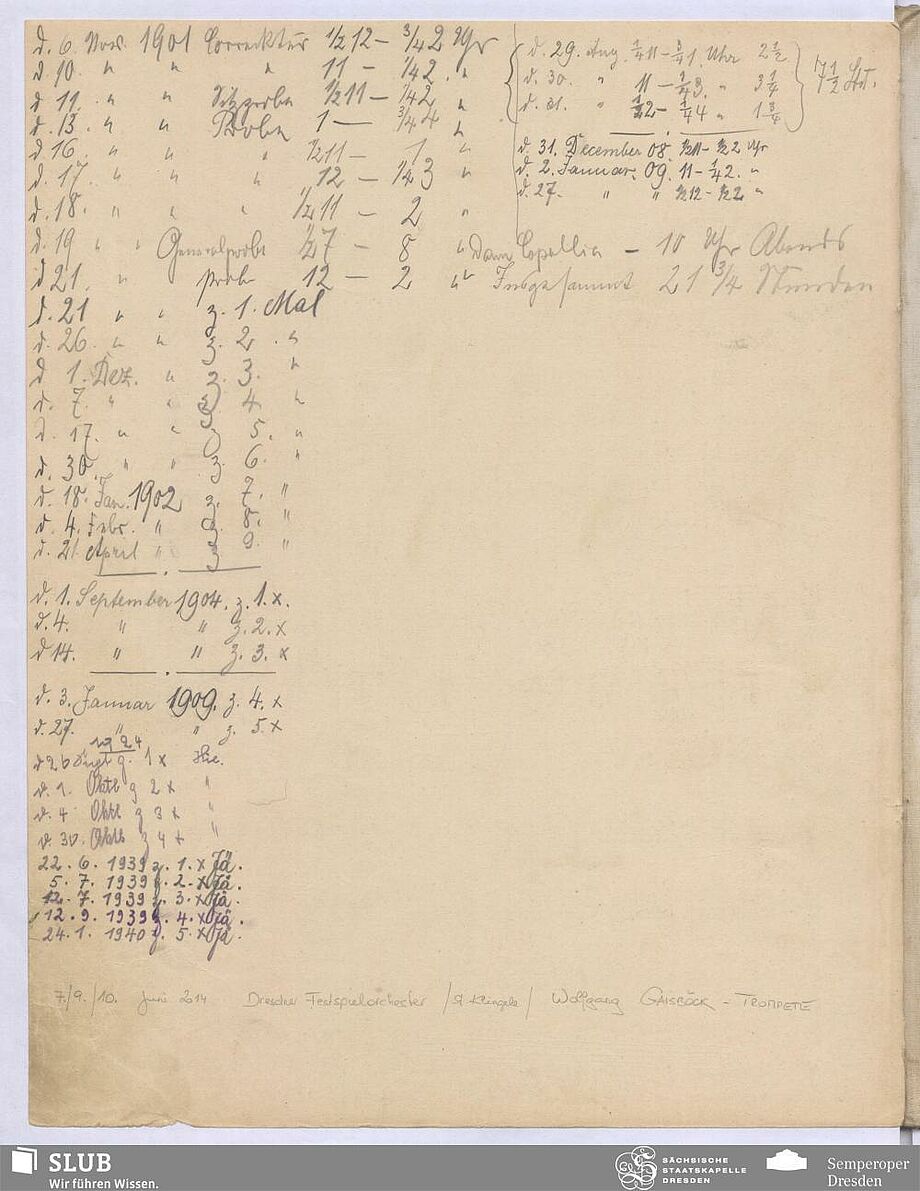
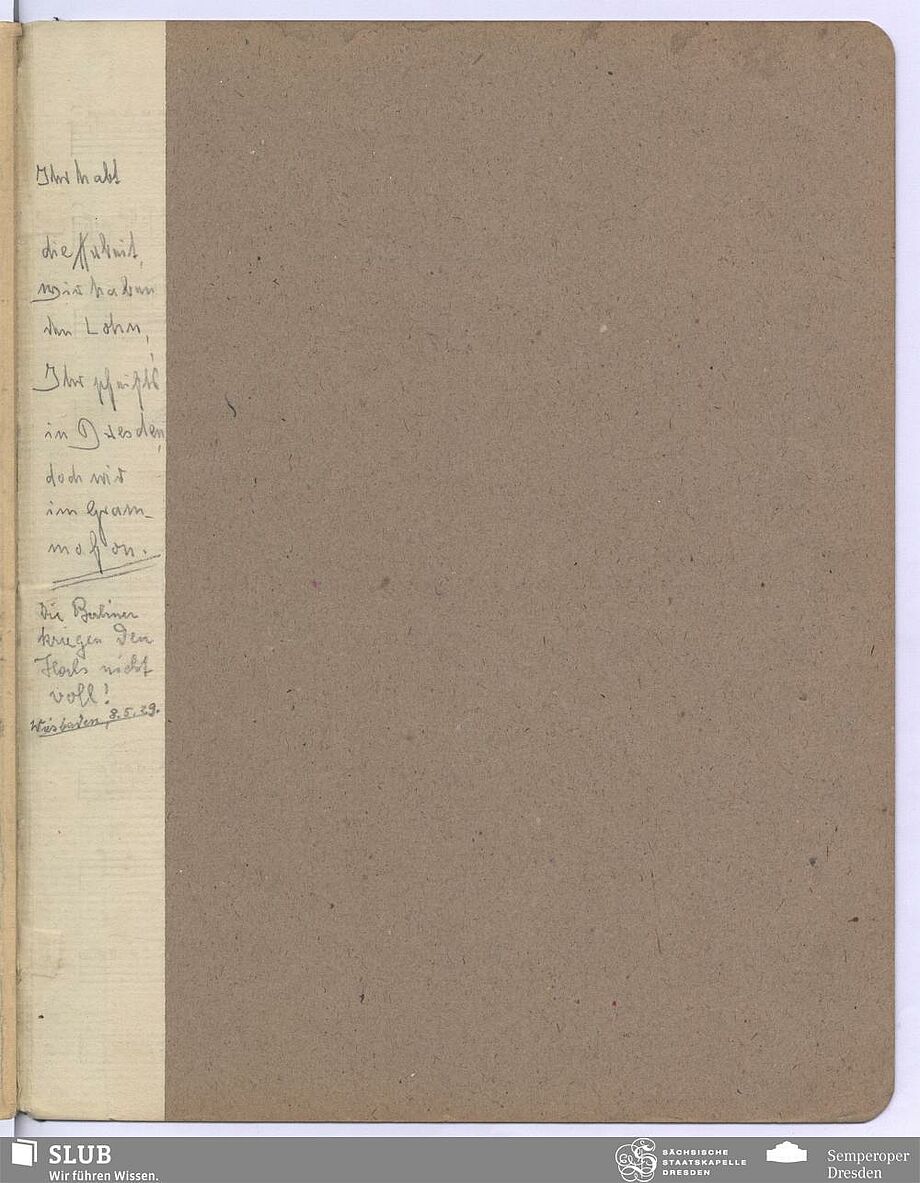
Sketches, scores, vocal material, pictures, letters, notes, recordings, programme notes and much more from the context of Richard Strauss' works are available digitally. In addition to the Straussiana of the SLUB, the "Richard Strauss Collection" contains valuable performance materials from the music library of the Sächsische Staatskapelle, including the premiere parts of the operas Elektra and Salome. The musicians' entries there not only allow conclusions to be drawn about the circumstances of interpretation, such as changes to the musical text or the instrumentation, but in many cases also provide information about rehearsal times and performance dates. And: the material has been borrowed: to Berlin for recordings, to Wiesbaden for the production there - so the notes contain not only the notes of the Dresden musicians, but also those of colleagues from other orchestras.
Music and text documents can be easily accessed via the SLUB's digital collection "Richard Strauss".
Early recordings of Strauss' works can be found in the SLUB's digital media library.
Photos and other visual material, including programme notes, can be found at the Deutsche Fotothek.
